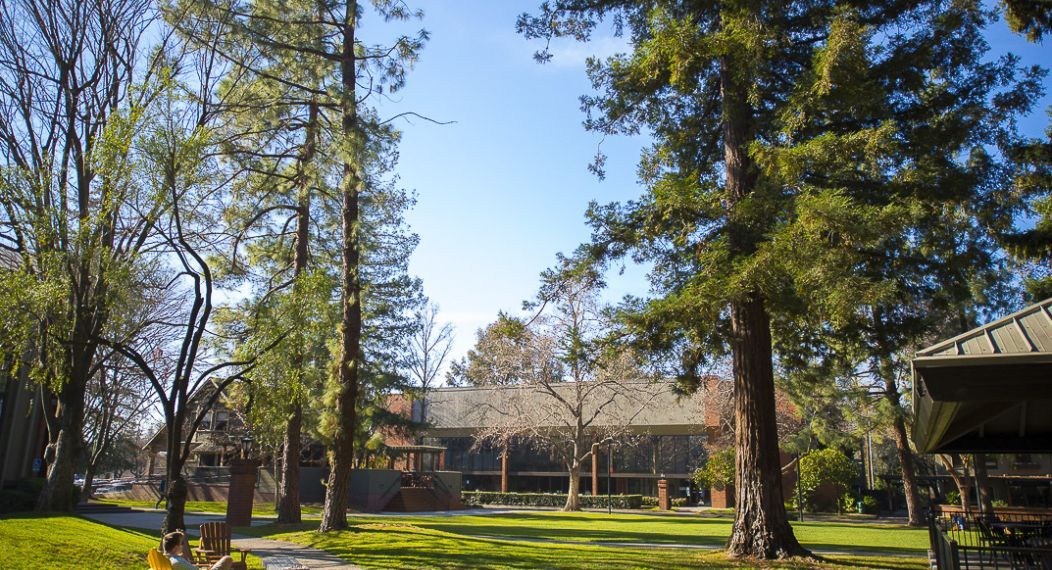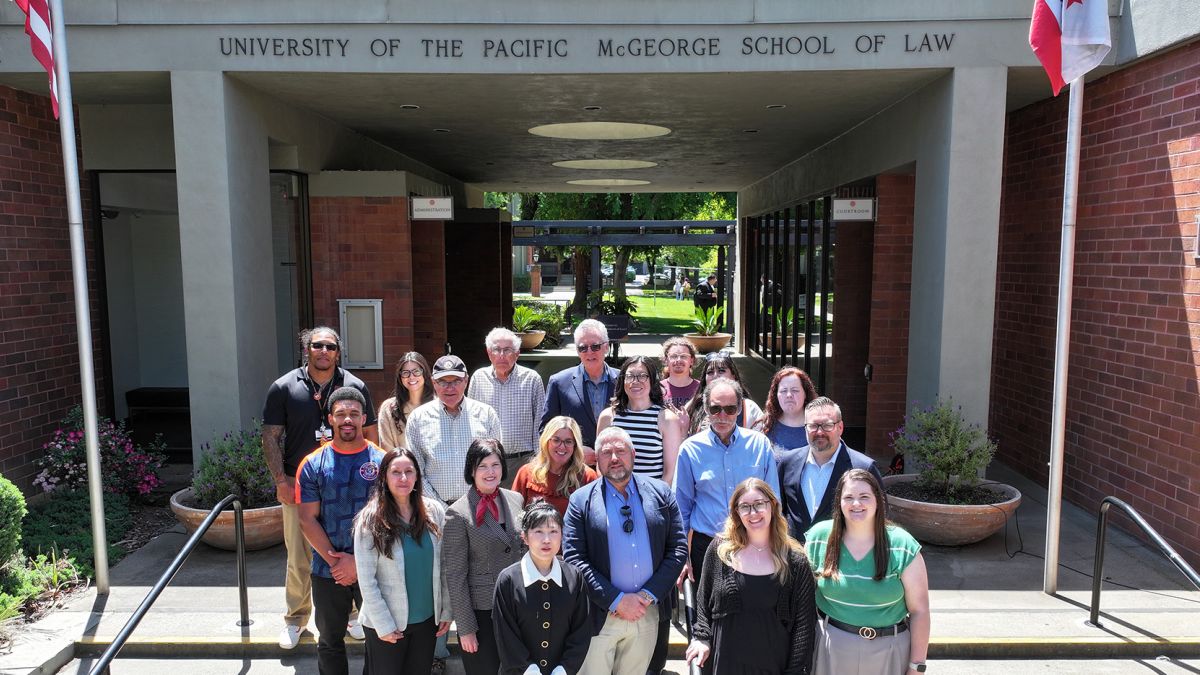The Rule of Law Under Pressure: Executive Power, the Role of the Judiciary, and Democracy’s Future
Symposium Details
Date: Friday, March 27, 2026
Time: 8:45 a.m. to 5:30 p.m. PT
Location: Hybrid, In-Person and via Zoom; Classrooms G and H
The symposium is free and open to the public and a detailed agenda will be added shortly. Lunch will be provided to attendees who participate in all six panels.
Reception Details
Please join us for refreshments and engaging activities following the University of the Pacific Law Review Symposium on March 27 from 5:30 to 7:30 p.m. in the Grand Salon.
Summary
The rule of law is facing unprecedented stress in the U.S., with persistent attempts to politicize the judiciary, executive overreach, and the erosion of institutional norms. This symposium will examine how judicial independence, legal institutions, and public trust can withstand these pressures. Discussions will feature debates on current and former administration policies, democratic backsliding, and the reforms needed to safeguard our legal system.
Preliminary Agenda
- 8:00–8:55 AM — Check-in & Opening Remarks
- Keynote Panel I — Courts, Democracy, and the Public Sphere
- Keynote Panel II — Executive Power, Lawyers, and Rule-of-Law Breakdown
- Single-Speaker — Punishment, Constitutional Meaning, and Moral Limits
- Keynote Panel III — Access, Enforcement, and Institutional Reform
- Single-Speaker — Technology, Humanity, and the Future of the Rule of Law
- Keynote Panel IV — Constitutional Meaning and Systemic Design
- 5:15–7:30 PM — Closing Remarks & Networking Reception
- Please note that the panel order may shift before the final schedule is posted. The final schedule will be updated by the end of February.
Key topics include:
- The tension between judicial independence and political interference, including executive branch policies (e.g., governing through executive orders, attacks on the DOJ, threats to withhold funding from “disloyal” jurisdictions, and efforts to delegitimize courts) that challenge the separation of powers.
- Democracy and the Courts, including real-world pressures that lead to ethical lapses.
- Debates around enforcement and accountability, such as how to balance AI innovation with human judgment.
- The roles of public trust and legal education in upholding the rule of law, including how declining faith in institutions and attacks on legal professionals weaken the legal ecosystem.
Speakers
- Raquel Aldana: Professor of Law at UC Davis School of Law
- Erin Carroll: Professor of Law at Georgetown University Law Center
- Salena Copeland: Executive Director at Legal Aid Association of California
- Scott L. Cummings: Professor of Law at UCLA School of Law
- Brian Gallini: Dean & Professor of Law at Quinnipiac University School of Law
- Corinna Lain: Professor of Law at University of Richmond School of Law
- Thomas Main: Professor of Law at William S. Boyd School of Law, University of Nevada, Las Vegas
- Mary-Beth Moylan: Associate Professor of Law at University of the Pacific McGeorge School of Law
- Kimberly J. Mueller: Senior U.S. District Judge, United States District Court, Eastern District of California
- Steve Ramirez: Professor of Law at Loyola University Chicago School of Law
- Charles W. “Rocky” Rhodes: Professor of Law at University of Missouri School of Law
- Michael Vitiello: Distinguished Professor of Law at University of the Pacific McGeorge School of Law
- Xingzhong Yu: Chair Professor at the Faculty of Law at the University of Macau
Moderators
- Erin O'Neal: Associate Professor of Law & Public Policy at University of the Pacific McGeorge School of Law
Questions?
For more information or information about accommodations for this event, please contact Symposium Editor Simyllina Chen at s_chen54@u.pacific.edu.




